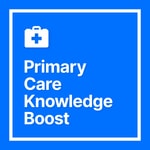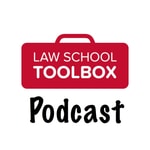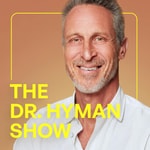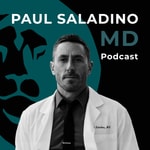Primary Care Knowledge Boost – Détails, épisodes et analyse
Détails du podcast
Informations techniques et générales issues du flux RSS du podcast.

Primary Care Knowledge Boost
Primary Care Knowledge Boost
Fréquence : 1 épisode/16j. Total Éps: 150

Classements récents
Dernières positions dans les classements Apple Podcasts et Spotify.
Apple Podcasts
🇬🇧 Grande Bretagne - education
27/07/2025#84🇬🇧 Grande Bretagne - education
19/07/2025#69🇬🇧 Grande Bretagne - education
18/07/2025#66🇬🇧 Grande Bretagne - education
17/07/2025#40🇬🇧 Grande Bretagne - education
16/07/2025#42🇬🇧 Grande Bretagne - education
15/07/2025#73🇬🇧 Grande Bretagne - education
14/07/2025#50🇬🇧 Grande Bretagne - education
13/07/2025#52🇬🇧 Grande Bretagne - education
12/07/2025#58🇬🇧 Grande Bretagne - education
11/07/2025#55
Spotify
Aucun classement récent disponible
Liens partagés entre épisodes et podcasts
Liens présents dans les descriptions d'épisodes et autres podcasts les utilisant également.
See all- https://pckb.org/feedback
171 partages
- https://www.tommys.org/
125 partages
- https://egplearning.co.uk/
109 partages
- https://twitter.com/PCKBpodcast
117 partages
- https://twitter.com/NASPTweets
2 partages
Qualité et score du flux RSS
Évaluation technique de la qualité et de la structure du flux RSS.
See allScore global : 52%
Historique des publications
Répartition mensuelle des publications d'épisodes au fil des années.
Proactive Care - Dementia Projects
Épisode 138
mercredi 7 août 2024 • Durée 29:44
Doctors Lisa and Sara talk to Dr Joanna Bircher, Dr Nikesh Vallabh, Shelley Ryder (SWAN PCN Manager and Transformation Lead) and Dr Fran Fitton. We find out what proactive care is all about and then launch into example projects around dementia care that Shelley and Fran are involved in. We hope this gives people a flavour of what proactive care projects could entail in General Practice in terms of design and implementation. Later in the year, we hope to bring more examples of projects and how they managed to get them off the ground.
You can use these podcasts as part of your CPD - we don’t do certificates but they still count :)
Useful resources:
- NHS Long Term Plan, Overview and Summary: https://www.longtermplan.nhs.uk/online-version/overview-and-summary/
- Proactive care: New GM support offer for 20 PCNs: https://gmpcb.org.uk/proactive-care-new-gm-support-offer-for-20-pcns/
- An Introduction to Quality Improvement: https://www.podbean.com/ew/pb-ubnht-114762e
___
We really want to make these episodes relevant and helpful: if you have any questions or want any particular areas covered then contact us on Twitter @PCKBpodcast, or leave a comment on our quick anonymous survey here: https://pckb.org/feedback
Email us at: primarycarepodcasts@gmail.com
___
This podcast has been made with the support of GP Excellence and Greater Manchester Integrated Care Board. Given that it is recorded with Greater Manchester clinicians, the information discussed may not be applicable elsewhere and it is important to consult local guidelines before making any treatment decisions.
The information presented is the personal opinion of the healthcare professional interviewed and might not be representative to all clinicians. It is based on their interpretation of current best practice and guidelines when the episode was recorded. Guidelines can change; To the best of our knowledge the information in this episode is up to date as of it’s release but it is the listeners responsibility to review the information and make sure it is still up to date when they listen.
Dr Lisa Adams, Dr Sara MacDermott and their interviewees are not liable for any advice, investigations, course of treatment, diagnosis or any other information, services or products listeners might pursue as a result of listening to this podcast - it is the clinicians responsibility to appraise the information given and review local and national guidelines before making treatment decisions. Reliance on information provided in this podcast is solely at the listeners risk.
The podcast is designed to be used by trained healthcare professionals for education only. We do not recommend these for patients or the general public and they are not to be used as a method of diagnosis, opinion, treatment or medical advice for the general public. Do not delay seeking medical advice based on the information contained in this podcast. If you have questions regarding your health or feel you may have a medical condition then promptly seek the opinion of a trained healthcare professional.
2024 Polypharmacy Summer Rewind
Épisode 137
mercredi 10 juillet 2024 • Durée 43:20
***SUMMER REWIND - INITIALLY RELEASED ON 31ST JAN 2024***
To get in touch: primarycarepodcasts@gmail.com
Doctors Lisa and Sara talk to Senior Pharmacist Sarah Hafeez about Polypharmacy. She explains the difference between inappropriate and appropriate polypharmacy before talking through some typical cases that illustrate several examples of common scenarios. This leads to discussions on prioritising concerns, weaning/stopping medications, counselling patients on the effects of Opioids and Gabapentinoids and involving community teams aiming for successful reductions of addiction forming medications. Other gems include a discussion of the potential long term risks of Proton Pump Inhibitors and advice on weaning, remembering to consider anticholinergic burdens as well as handy resources for tackling Polypharmacy, Structured Medications Reviews and medication reductions.
You can use these podcasts as part of your CPD - we don’t do certificates but they still count :)
Useful resources:
-
Greater Manchester Medicines Management Group: Inappropriate Polypharmacy Review and Treatment Optimisation: Resource Pack (from Dec 2022, accessed Dec 2023): https://gmmmg.nhs.uk/wp-content/uploads/2023/02/GMMMG-Polypharmacy-resource-pack-v3.0.pdf
-
Scotland Polypharmacy Resources for Professionals and for Patients: https://www.polypharmacy.scot.nhs.uk/for-patients-and-carers/
-
Scottish Polypharmacy Guidance 2018: https://www.therapeutics.scot.nhs.uk/wp-content/uploads/2018/04/Polypharmacy-Guidance-2018.pdf
-
Lewis T. Using the NO TEARS tool for medication review. BMJ. 2004 Aug 21;329(7463):434. doi: 10.1136/bmj.329.7463.434. PMID: 15321901; PMCID: PMC514207 https://www.ncbi.nlm.nih.gov/pmc/articles/PMC514207/
-
Toolkit for General Practice in Supporting Older People Living with Frailty (includes a great Appendix of the STOPP/START criteria (2017): https://www.england.nhs.uk/wp-content/uploads/2017/03/toolkit-general-practice-frailty-1.pdf
-
An example of an Anticholinergic Burdon Resource from West Essex CCG 2020: https://westessexccg.nhs.uk/your-health/medicines-optimisation-and-pharmacy/clinical-guidelines-and-prescribing-formularies/04-central-nervous-system/61-anticholinergic-side-effects-and-prescribing-guidance/file
-
Canadian Resource for Deprescribing including reducing medications and some patient information leaflets: https://deprescribing.org/
-
Resource for help reducing and stopping medications: https://medstopper.com/
-
Me and My Medicines Resource for Patients to look through their medications before reviews or for information: https://meandmymedicines.org.uk/
-
Anticholinergic Medications and Risks of Dementia Cochrane Editorial with Reports in Link (Sept 2021): https://www.cochranelibrary.com/cdsr/doi/10.1002/14651858.ED000154/full
- Anticholinergic drugs and risk of dementia: Time for action? British Pharmacological Society. Bell B et al Jun 2021 (9:3). Accessed 15/1/2024: https://bpspubs.onlinelibrary.wiley.com/doi/full/10.1002/prp2.793
- Cognitive Effects of Anticholinergic Load in Women with Overactive Bladder. Clin Interv Aging. 2020; 15: 1493–1503: https://www.ncbi.nlm.nih.gov/pmc/articles/PMC7457731/
- Greater Manchester Medicines Management Group: Management of Overactive Bladder Including a simple Bladder Diary before and after stopping Medications (Jun 2019): https://gmmmg.nhs.uk/wp-content/uploads/2021/08/Management-of-OAB-in-adults-v3-0-approved-Aug-2019.pdf
___
We really want to make these episodes relevant and helpful: if you have any questions or want any particular areas covered then contact us on Twitter @PCKBpodcast, or leave a comment on our quick anonymous survey here: https://pckb.org/feedback
Email us at: primarycarepodcasts@gmail.com
___
This podcast has been made with the support of GP Excellence and Greater Manchester Integrated Care Board. Given that it is recorded with Greater Manchester clinicians, the information discussed may not be applicable elsewhere and it is important to consult local guidelines before making any treatment decisions.
The information presented is the personal opinion of the healthcare professional interviewed and might not be representative to all clinicians. It is based on their interpretation of current best practice and guidelines when the episode was recorded. Guidelines can change; To the best of our knowledge the information in this episode is up to date as of it’s release but it is the listeners responsibility to review the information and make sure it is still up to date when they listen.
Dr Lisa Adams, Dr Sara MacDermott and their interviewees are not liable for any advice, investigations, course of treatment, diagnosis or any other information, services or products listeners might pursue as a result of listening to this podcast - it is the clinicians responsibility to appraise the information given and review local and national guidelines before making treatment decisions. Reliance on information provided in this podcast is solely at the listeners risk.
The podcast is designed to be used by trained healthcare professionals for education only. We do not recommend these for patients or the general public and they are not to be used as a method of diagnosis, opinion, treatment or medical advice for the general public. Do not delay seeking medical advice based on the information contained in this podcast. If you have questions regarding your health or feel you may have a medical condition then promptly seek the opinion of a trained healthcare professional.
MSK Mini-Series: Shoulder Pain
Épisode 128
mercredi 28 février 2024 • Durée 23:12
This is the second episode in our MSK mini-series. Doctors Lisa and Sara speak to Tom Smith and Charlotte Barker again, who are First Contact Practitioners in Wigan. The focus of this chat is shoulder pain - using a hypothetical case to discuss important history points, red flags, useful examination tips, differential diagnoses and further assessment options.
You can use these podcasts as part of your CPD - we don’t do certificates but they still count :)
Useful resources:
-
British Elbow and Shoulder Society guidelines: https://bess.ac.uk/national-guidelines/
-
British Elbow and Shoulder Society pathways: https://bess.ac.uk/patient-care-pathways-and-guidelines/
-
ShoulderDoc: https://www.shoulderdoc.co.uk/
-
Patient Exercise Options: https://www.nhs.uk/conditions/nhs-fitness-studio/
___
We really want to make these episodes relevant and helpful: if you have any questions or want any particular areas covered then contact us on Twitter @PCKBpodcast, or leave a comment on our quick anonymous survey here: https://pckb.org/feedback
Email us at: primarycarepodcasts@gmail.com
___
This podcast has been made with the support of GP Excellence and Greater Manchester Integrated Care Board. Given that it is recorded with Greater Manchester clinicians, the information discussed may not be applicable elsewhere and it is important to consult local guidelines before making any treatment decisions.
The information presented is the personal opinion of the healthcare professional interviewed and might not be representative to all clinicians. It is based on their interpretation of current best practice and guidelines when the episode was recorded. Guidelines can change; To the best of our knowledge the information in this episode is up to date as of it’s release but it is the listeners responsibility to review the information and make sure it is still up to date when they listen.
Dr Lisa Adams, Dr Sara MacDermott and their interviewees are not liable for any advice, investigations, course of treatment, diagnosis or any other information, services or products listeners might pursue as a result of listening to this podcast - it is the clinicians responsibility to appraise the information given and review local and national guidelines before making treatment decisions. Reliance on information provided in this podcast is solely at the listeners risk.
The podcast is designed to be used by trained healthcare professionals for education only. We do not recommend these for patients or the general public and they are not to be used as a method of diagnosis, opinion, treatment or medical advice for the general public. Do not delay seeking medical advice based on the information contained in this podcast. If you have questions regarding your health or feel you may have a medical condition then promptly seek the opinion of a trained healthcare professional.
Consultation Skills for Primary Care
Épisode 38
mercredi 5 août 2020 • Durée 37:43
Good consultation skills can hone diagnosis, management plans, safety-netting and safety thereby really affecting patient outcomes. GP and Primary Care Educator Dr Avril Danczak shares her insights into teaching GP trainees and trainers about consultation skills with Lisa and Sara.
Useful resources:
-
Health Education North West Advanced Communication Skills Resources https://www.nwpgmd.nhs.uk/resources/advanced-communication-skills-reading-list
-
Article: Kaiser Permanente: Enhancing Clinician Communication Skills in a Large Healthcare Organization: A longitudinal Case Study https://www.sciencedirect.com/science/article/abs/pii/S0738399105000133
-
Book: Silverman, Kurtz and Draper: Skills for Communicating with Patients https://www.amazon.co.uk/Skills-Communicating-Patients-Jonathan-Silverman/dp/1846193656/ref=pd_rhf_se_p_img_2?_encoding=UTF8&psc=1&refRID=T0WVKH6Y145JAJ1VDHCJ
-
Book: Platt and Gordon: Field Guide to the Difficult Patient Interview https://www.amazon.co.uk/Field-Guide-Difficult-Patient-Interview/dp/0781747740
-
Book: Barry Bub MD: Communication Skills That Heal https://www.amazon.co.uk/Communication-Skills-That-Heal-Professionalism/dp/1857756649
___
We really want to make these episodes relevant and helpful: if you have any questions or want any particular areas covered then contact us on Twitter @PCKBpodcast, or leave a comment on our really quick anonymous survey here: https://www.surveymonkey.co.uk/r/YLN6GKT
___
This episode has been made with the support of Health Education North West. Given that they are recorded with Greater Manchester clinicians, the information discussed may not be applicable elsewhere and it is important to consult local guidelines before making any treatment decisions.
The information presented is the personal opinion of the healthcare professional interviewed and might not be representative to all clinicians. It is based on their interpretation of current best practice and guidelines when the episode was recorded. Guidelines can change; To the best of our knowledge the information in this episode is up to date as of it’s release but it is the listeners responsibility to review the information and make sure it is still up to date when they listen.
Dr Lisa Adams, Dr Sara MacDermott and their interviewees are not liable for any advice, investigations, course of treatment, diagnosis or any other information, services or products listeners might pursue as a result of listening to this podcast - it is the clinicians responsibility to appraise the information given and review local and national guidelines before making treatment decisions. Reliance on information provided in this podcast is solely at the listeners risk.
The podcast is designed to be used by trained healthcare professionals for education only. We do not recommend these for patients or the general public and they are not to be used as a method of diagnosis, opinion, treatment or medical advice for the general public. Do not delay seeking medical advice based on the information contained in this podcast. If you have questions regarding your health or feel you may have a medical condition then promptly seek the opinion of a trained healthcare professional.
Preparing for the AKT exam
Épisode 37
mercredi 22 juillet 2020 • Durée 25:43
As part of her role as Associate Dean in Health Education North West, Dr Alison Caldwell looks after GP trainees who sit the AKT and those that may fail. In this episode she shares her pearls of wisdom for preparing and sitting the AKT.
It has lots of useful information for trainees and trainers including how to break down the curriculum and where to best focus learning as well as how to actually do that learning effectively. We also cover how to improve exam technique as well as useful resources and specific advice for those who have tried and failed the exam.
____
Useful resources:
-
Fourteen Fish for GP Trainees: https://www.fourteenfish.com/audience/gptrainee
-
RCGP - MRCGP Applied Knowledge Test (AKT): https://www.rcgp.org.uk/training-exams/mrcgp-exam-overview/mrcgp-applied-knowledge-test-akt.aspx
-
RCGP- GP Curriculum Overview: https://www.rcgp.org.uk/training-exams/training/gp-curriculum-overview.aspx
-
BNF Online: https://bnf.nice.org.uk/
-
RCGP - Clinical evidence and data interpretation: https://www.rcgp.org.uk/training-exams/mrcgp-exam-overview/-/media/B4406D5D2E9A492B86AD74BC3FEFD08B.ashx
-
Bolton GP scheme - Medical statistics: http://boltongptraining.org.uk/wp-content/uploads/2013/10/Stats_Handout_2_MEHDI_FARD_ST3.pdf
-
General Practice Education in Health Education England working across the North West: https://www.nwpgmd.nhs.uk/general-practice-education-north-western-deanery
____
We really want to make these episodes relevant and helpful: if you have any questions or want any particular areas covered then contact us on Twitter @PCKBpodcast, or leave a comment on our really quick anonymous survey here: https://www.surveymonkey.co.uk/r/YLN6GKT
____
This episode has been made with the support of Health Education North West. Given that they are recorded with Greater Manchester clinicians, the information discussed may not be applicable elsewhere and it is important to consult local guidelines before making any treatment decisions.
The information presented is the personal opinion of the healthcare professional interviewed and might not be representative to all clinicians. It is based on their interpretation of current best practice and guidelines when the episode was recorded. Guidelines can change; To the best of our knowledge the information in this episode is up to date as of it’s release but it is the listeners responsibility to review the information and make sure it is still up to date when they listen.
Dr Lisa Adams, Dr Sara MacDermott and their interviewees are not liable for any advice, investigations, course of treatment, diagnosis or any other information, services or products listeners might pursue as a result of listening to this podcast - it is the clinicians responsibility to appraise the information given and review local and national guidelines before making treatment decisions. Reliance on information provided in this podcast is solely at the listeners risk.
The podcast is designed to be used by trained healthcare professionals for education only. We do not recommend these for patients or the general public and they are not to be used as a method of diagnosis, opinion, treatment or medical advice for the general public. Do not delay seeking medical advice based on the information contained in this podcast. If you have questions regarding your health or feel you may have a medical condition then promptly seek the opinion of a trained healthcare professional.
COVID-19 Episode 13: Staff Wellbeing and Silver Linings
Épisode 36
mercredi 8 juillet 2020 • Durée 26:23
Lisa and Sara bring back Dr Joanna Bircher and Dr Viren Mehta for this last episode in the COVID-19 series to reflect on all of the positives that have come from the outbreak in general practice, the personal and professional learning that they have had and some focus on staff wellbeing with a few simple ideas on how to support each other.
Thank you to Practice Managers Sara Mayer at Archwood Medical Practice and Michelle Davenport at Heaton Mersey Medical Practice for sharing their insights too.
____
Useful resources:
-
Headspace - information about free NHS access: https://help.headspace.com/hc/en-us/articles/360044971154-Headspace-for-the-NHS
-
Looking After You Too coaching: https://people.nhs.uk/lookingafteryoutoo/
-
NHS Practitioner Health programme: https://www.practitionerhealth.nhs.uk/accessing-the-service
-
RCGP Wellbeing Resources: https://www.rcgp.org.uk/training-exams/practice/gp-wellbeing.aspx
____
We really want to make these episodes relevant and helpful: if you have any questions or want any particular areas covered then contact us on Twitter @PCKBpodcast, or leave a comment on our really quick anonymous survey here: https://www.surveymonkey.co.uk/r/YYQ763C
____
This podcast has been made with the support of Wigan CCG and GP Excellence in Greater Manchester. Given that they are recorded with Greater Manchester clinicians, the information discussed may not be applicable elsewhere and it is important to consult local guidelines before making any treatment decisions.
The information presented is the personal opinion of the healthcare professional interviewed and might not be representative to all clinicians. It is based on their interpretation of current best practice and guidelines when the episode was recorded. Guidelines can change; To the best of our knowledge the information in this episode is up to date as of it’s release but it is the listeners responsibility to review the information and make sure it is still up to date when they listen.
Dr Lisa Adams, Dr Sara MacDermott and their interviewees are not liable for any advice, investigations, course of treatment, diagnosis or any other information, services or products listeners might pursue as a result of listening to this podcast - it is the clinicians responsibility to appraise the information given and review local and national guidelines before making treatment decisions. Reliance on information provided in this podcast is solely at the listeners risk.
The podcast is designed to be used by trained healthcare professionals for education only. We do not recommend these for patients or the general public and they are not to be used as a method of diagnosis, opinion, treatment or medical advice for the general public. Do not delay seeking medical advice based on the information contained in this podcast. If you have questions regarding your health or feel you may have a medical condition then promptly seek the opinion of a trained healthcare professional.
COVID-19 Episode 12: Managing Death in the Community
Épisode 35
mercredi 1 juillet 2020 • Durée 25:21
Now that the Greater Manchester Enabling Safe Certification of Death in the Community service is being stood down, we take the opportunity to talk through the new legislation (from the Coronavirus Act 2020) and how this applies in practice.
Dr Aamna Khan (GP and Clinical Lead for the Enabling Safe Certification of Death in the community service) and Dr Viren Mehta (GP partner, clinical director of his PCN and clinical director for Stockport CCG) take us through this important subject.
They discuss:
- Expected and unexpected deaths and how these should be approached
- Who should be referred to the coroner and when to write COVID-19 on the death certificate
- Verification of death and who can do this
- Who can complete paperwork such as the death certificate and cremation forms and the criteria that now needs to be satisfied to enable this to be done
- Tips on how to complete this paperwork at the moment
- The ways in which the registration process has changed
- Thoughts on how practices and PCNs can think about their systems to make death in the community safer and smoother for everyone involved
____
Useful resources:
-
Information and contact details for Greater Manchester Enabling Safe Certification of Deaths in the Community Service: https://gmprimarycare.org.uk/coronavirus/
-
Coronavirus Act 2020: http://www.legislation.gov.uk/ukpga/2020/7/contents/enacted
-
Red Whale - COVID-19: Death in the community: https://www.gp-update.co.uk/SM4/Mutable/Uploads/pdf_file/28_GP_COVID-19_The-Coronovirus-Act-2020-Death-certification,-cremation-and-burial.pdf
____
We really want to make these episodes relevant and helpful: if you have any questions or want any particular areas covered then contact us on Twitter @PCKBpodcast, or leave a comment on our really quick anonymous survey here: https://www.surveymonkey.co.uk/r/YYQ763C
____
This podcast has been made with the support of Wigan CCG and GP Excellence in Greater Manchester. Given that they are recorded with Greater Manchester clinicians, the information discussed may not be applicable elsewhere and it is important to consult local guidelines before making any treatment decisions.
The information presented is the personal opinion of the healthcare professional interviewed and might not be representative to all clinicians. It is based on their interpretation of current best practice and guidelines when the episode was recorded. Guidelines can change; To the best of our knowledge the information in this episode is up to date as of it’s release but it is the listeners responsibility to review the information and make sure it is still up to date when they listen.
Dr Lisa Adams, Dr Sara MacDermott and their interviewees are not liable for any advice, investigations, course of treatment, diagnosis or any other information, services or products listeners might pursue as a result of listening to this podcast - it is the clinicians responsibility to appraise the information given and review local and national guidelines before making treatment decisions. Reliance on information provided in this podcast is solely at the listeners risk.
The podcast is designed to be used by trained healthcare professionals for education only. We do not recommend these for patients or the general public and they are not to be used as a method of diagnosis, opinion, treatment or medical advice for the general public. Do not delay seeking medical advice based on the information contained in this podcast. If you have questions regarding your health or feel you may have a medical condition then promptly seek the opinion of a trained healthcare professional.
COVID-19 Episode 11: Social Prescribing
Épisode 34
mercredi 24 juin 2020 • Durée 34:04
At the moment with increased isolation, anxiety and loneliness, social prescribing has become more important than ever.
Sara and Lisa speak to GP Dr Jaweeda Idoo (clinical champion for personalised care in Greater Manchester) and Sophie Glinka (social prescribing lead for people and communities in Greater Manchester) about the role of social prescribing during COVID-19 and indeed in general. They talk about some case studies where social prescribing has been invaluable to the care and support of patients, and showcase the importance of this facet of community care.
____
Useful resources:
- The Health Foundation - What makes us healthy? An introduction to the social determinants of health (2018): https://www.health.org.uk/sites/default/files/What-makes-us-healthy-quick-guide.pdf
- International Journal of Epidemiology - Sick individuals and sick populations (2001): https://academic.oup.com/ije/article/30/3/427/736897
- Proceedings of the National Academy of Sciences of the United States of America - Social isolation, loneliness, and all-cause mortality in older men and women (2013): https://www.pnas.org/content/110/15/5797.short
____
We really want to make these episodes relevant and helpful: if you have any questions or want any particular areas covered then contact us on Twitter @PCKBpodcast, or leave a comment on our really quick anonymous survey here: https://www.surveymonkey.co.uk/r/YYQ763C
____
This podcast has been made with the support of Wigan CCG and GP Excellence in Greater Manchester. Given that they are recorded with Greater Manchester clinicians, the information discussed may not be applicable elsewhere and it is important to consult local guidelines before making any treatment decisions.
The information presented is the personal opinion of the healthcare professional interviewed and might not be representative to all clinicians. It is based on their interpretation of current best practice and guidelines when the episode was recorded. Guidelines can change; To the best of our knowledge the information in this episode is up to date as of it’s release but it is the listeners responsibility to review the information and make sure it is still up to date when they listen.
Dr Lisa Adams, Dr Sara MacDermott and their interviewees are not liable for any advice, investigations, course of treatment, diagnosis or any other information, services or products listeners might pursue as a result of listening to this podcast - it is the clinicians responsibility to appraise the information given and review local and national guidelines before making treatment decisions. Reliance on information provided in this podcast is solely at the listeners risk.
The podcast is designed to be used by trained healthcare professionals for education only. We do not recommend these for patients or the general public and they are not to be used as a method of diagnosis, opinion, treatment or medical advice for the general public. Do not delay seeking medical advice based on the information contained in this podcast. If you have questions regarding your health or feel you may have a medical condition then promptly seek the opinion of a trained healthcare professional.
COVID-19 Episode 10: Staff Risk Assessment in General Practice
Épisode 33
mercredi 17 juin 2020 • Durée 28:35
Staff risk assessments in primary care during COVID-19 are generating many questions such as;
- Which tool?
- How should they be carried out?
- What are the advantages and disadvantages of doing them?
- How does Vitamin D fit in?
- What does this mean for practice?
GPs Sara and Lisa talk to Greater Manchester based GP Dr Jaweeda Idoo and Practice manager Gina Bird about their experiences of staff risk assessments in general practice at the moment.
____
Useful resources:
- BMJ Covid-19: Known risk factors fail to explain the increased risk of death among people from ethnic minorities May 2020: https://www.bmj.com/content/369/bmj.m1873
- NHS Staff Risk Assessments: https://www.nhsemployers.org/covid19/health-safety-and-wellbeing/risk-assessments-for-staff
- SAAD Risk Assessment: https://abmacademy.com/saad-risk-scoring-for-bame/
- Welsh Risk Assessment Tool COVID-19 (WRATC): https://www.bapio.co.uk/wp-content/uploads/2020/05/Risk-Assessment-Tool.pdf
- RCOG Covid-19 Advice in Pregnancy: https://www.rcog.org.uk/en/guidelines-research-services/guidelines/coronavirus-pregnancy/
____
We really want to make these episodes relevant and helpful: if you have any questions or want any particular areas covered then contact us on Twitter @PCKBpodcast, or leave a comment on our really quick anonymous survey here: https://www.surveymonkey.co.uk/r/YYQ763C
____
This podcast has been made with the support of Wigan CCG and GP Excellence in Greater Manchester. Given that they are recorded with Greater Manchester clinicians, the information discussed may not be applicable elsewhere and it is important to consult local guidelines before making any treatment decisions.
The information presented is the personal opinion of the healthcare professional interviewed and might not be representative to all clinicians. It is based on their interpretation of current best practice and guidelines when the episode was recorded. Guidelines can change; To the best of our knowledge the information in this episode is up to date as of it’s release but it is the listeners responsibility to review the information and make sure it is still up to date when they listen.
Dr Lisa Adams, Dr Sara MacDermott and their interviewees are not liable for any advice, investigations, course of treatment, diagnosis or any other information, services or products listeners might pursue as a result of listening to this podcast - it is the clinicians responsibility to appraise the information given and review local and national guidelines before making treatment decisions. Reliance on information provided in this podcast is solely at the listeners risk.
The podcast is designed to be used by trained healthcare professionals for education only. We do not recommend these for patients or the general public and they are not to be used as a method of diagnosis, opinion, treatment or medical advice for the general public. Do not delay seeking medical advice based on the information contained in this podcast. If you have questions regarding your health or feel you may have a medical condition then promptly seek the opinion of a trained healthcare professional.
Fibromyalgia Part 2 (Greater Manchester based)
Épisode 32
mercredi 3 juin 2020 • Durée 47:07
Recorded in January 2020, this is the long awaited second part of Lisa and Sara’s conversation with Professor Anthony Jones and Consultant Physiotherapist William Gregory from Salford Royal Foundation Trust. In Part 1 we covered diagnosis and in Part 2 we look at management of fibromyalgia including:
- The role of targeted CBT and physiotherapy
- Groups for patient education and support
- The role of medications
- Where secondary care fits in
- Research in the area
- The place alternative therapies occupy for some with this condition
- Natural progression and associated conditions
- Helpful resources for patients and practitioners
____
Useful resources:
- Fibromyalgia Action (FMA) UK website (for patient info and list of local support groups): http://www.fmauk.org/
- Versus Arthritis booklet: https://www.versusarthritis.org/about-arthritis/conditions/fibromyalgia/
- Pain toolkit: https://www.paintoolkit.org/
- Living well with pain: https://livewellwithpain.co.uk/
- Moving Medicine: https://movingmedicine.ac.uk/
- Theatre Performance for all interested in learning about how the brain works in chronic pain: Pain, the Brain and a little bit of Magic: http://research.bmh.manchester.ac.uk/pain//events/PainTheBrainandabitofMagic
- Currently available checklist for Fibromyalgia diagnosis on ACR website: https://www.rheumatology.org/Practice-Quality/Clinical-Support/Criteria/ACR-Endorsed-Criteria
- A version of the 2016 ACR checklist (amended from the 2010 version): https://people.clarkson.edu/~lrussek/2016FMS.pdf
____
We really want to make these episodes relevant and helpful: if you have any questions or want any particular areas covered then contact us on Twitter @PCKBpodcast, or make our day and fill out our really quick anonymous survey here: https://www.surveymonkey.co.uk/r/YYQ763C
____
This podcast has been made with the support of Wigan CCG and GP Excellence in Greater Manchester. Given that they are recorded with Greater Manchester clinicians, the information discussed may not be applicable elsewhere and it is important to consult local guidelines before making any treatment decisions.
The information presented is the personal opinion of the healthcare professional interviewed and might not be representative to all clinicians. It is based on their interpretation of current best practice and guidelines when the episode was recorded. Guidelines can change; To the best of our knowledge the information in this episode is up to date as of it’s release but it is the listeners responsibility to review the information and make sure it is still up to date when they listen.
Dr Lisa Adams, Dr Sara MacDermott and their interviewees are not liable for any advice, investigations, course of treatment, diagnosis or any other information, services or products listeners might pursue as a result of listening to this podcast - it is the clinicians responsibility to appraise the information given and review local and national guidelines before making treatment decisions. Reliance on information provided in this podcast is solely at the listeners risk.
The podcast is designed to be used by trained healthcare professionals for education only. We do not recommend these for patients or the general public and they are not to be used as a method of diagnosis, opinion, treatment or medical advice for the general public. Do not delay seeking medical advice based on the information contained in this podcast. If you have questions regarding your health or feel you may have a medical condition then promptly seek the opinion of a trained healthcare professional.









